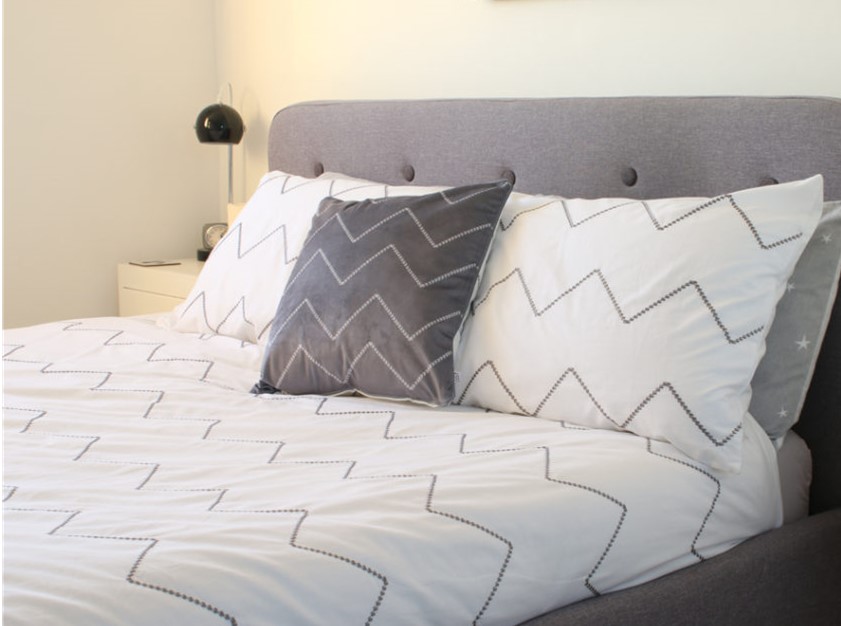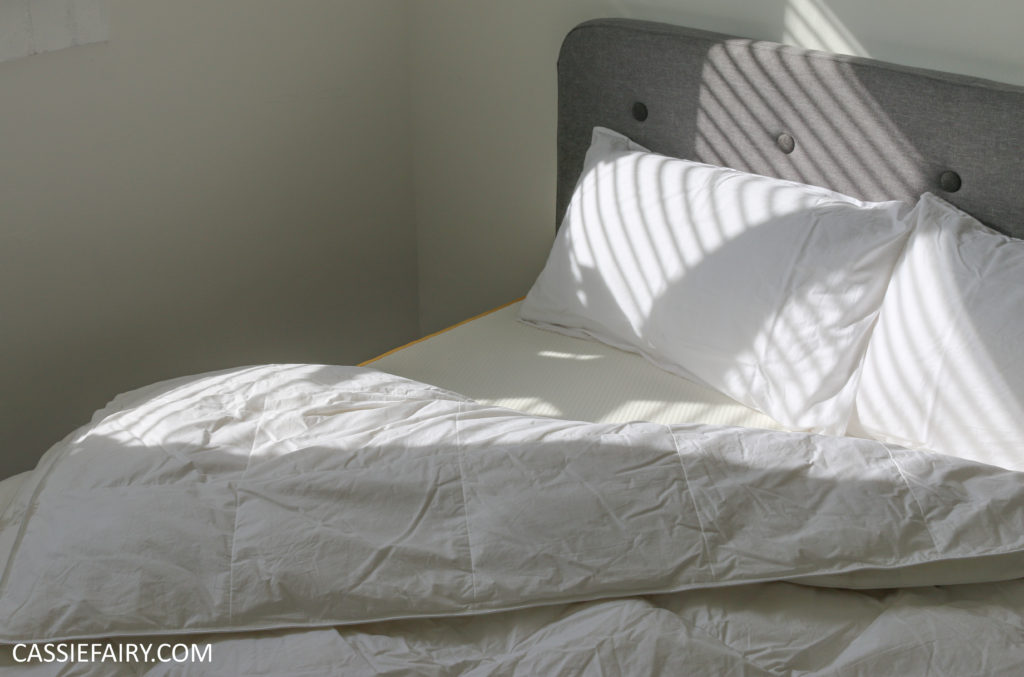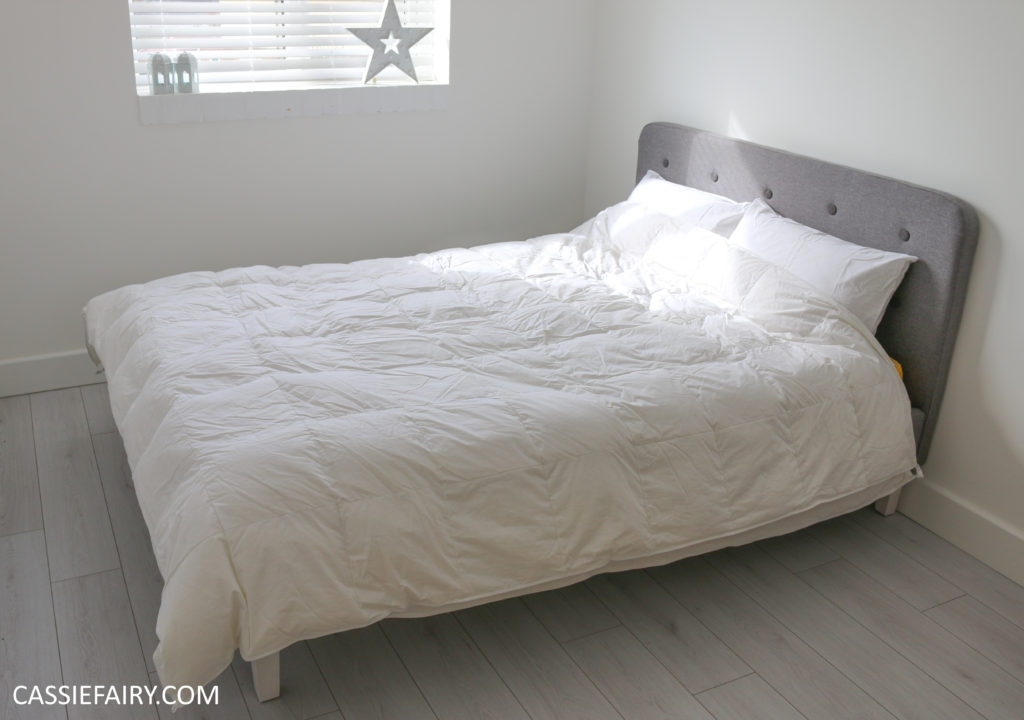
A healthy sleeping pattern is essential to maintaining your health and I think it’s one of the most important factors in living a happy life. Despite its importance, many people neglect this vital function. You may have even adopted some unhealthy habits that are throwing off your sleeping pattern. However, it’s not that hard to get back on track – and stay there. The benefits more than justify the effort so here are three tips for getting better sleep. every night…
Stay comfortable
If anyone told me that a pillow could make such a difference to my quality of sleep – and my waking life too – I wouldn’t have believed them. But that’s before I found the right pillow for me. You see, the fluffy thing you lie your head on at the end of the day needs to be right for you. Just because you’re sharing your bed with someone else, it doesn’t mean that you have the same requirements in terms of pillows. For example, I need a very supportive memory foam pillow to protect my neck. If I sleep on anything too soft or too hard, I’ll wake up with a crick in my neck that aggravates my whiplash injury, meaning I’ll have headaches for the rest of the day. On the other hand, my husband can sleep flat on the mattress and doesn’t suffer at all.
Just the fact that it is possible to buy cooling pillows, pillows for side-sleepers, and those crazy-looking tube-like pregnancy pillows means there really is a pillow out there to suit you. If you can’t be sure what type of pillow will make a difference to the quality of your sleep, check out a comparison site like Pillow Picker to help you whittle down the plethora of choices. Getting your head, neck and back in the correct position will make a massive difference to how soundly you sleep and can even help to improve on-going conditions like back, neck or joint pain.

Stay clean
Hygiene really can make a difference to the quality of your sleep. I blogged about bedroom allergens last week – including how to get rid of dust mites – as coughing or sniffling lead to poor sleep. Make sure to clean your bedsheets and pillow cases regularly, and try to avoid leaving them unwashed for more than a week or so. You can even shower before you go to sleep to keep your bedsheets as clean as possible and prevent bed allergens from taking hold.
On another level, it also means you should keep your bedroom and sleeping patterns clean. Remove distractions from your bedroom – restrict the amount of furniture to your bed only. Televisions, consoles, phones, and other distractions should have no place in your room, which you should see as a place of rest only. Another aspect of cleanliness stems from your mattress. Make sure to replace your mattress if it is showing signs of aging or if it is more than a decade old. Finding good mattresses can be difficult, so search around online. Lull mattress reviews is a good place to start.
Stay Healthy

It is exceptionally important to keep a healthy lifestyle in order to compliment your healthy sleep pattern. You should avoid doing destructive things immediately before bed – alcohol and other drugs have been proven to negatively affect your sleep, as well as cause disturbing or unsettling dreams that can see you waking up several times throughout the night. This will make it significantly more difficult to get the sleep that your body desperately needs. Practice relaxation techniques, as this will allow you to improve how your body settles into any changes you have to make to your lifestyle. Improvements to your diet are always going to be good for you, but you will see the benefits to your sleep as well as your general energy levels almost immediately.
Exercise should be vigorous and consistent – this is good for your health in general but can also help you to sleep more soundly. The chemicals your body releases in order to help you exercise speed up your metabolism, increase your body temperature, and make you alert, so try to do any activity in the morning. If you must exercise in the evening, try to finish at least three to four hours before bed. To compliment this, also try to avoid large meals or drinking too close to bedtime – both may disturb your sleep through activity in your digestive system, and this will lead to an interrupted, choppy sleeping pattern.
Stay Consistent
Sleep patterns should be consistent from day to day. Preferably, they should follow your natural Circadian rhythm — from dusk to dawn. Many people, especially those who do shift work, may find that sticking to a traditional day/night cycle isn’t feasible. Instead, just aim to keep your sleep patterns, whatever they must be, consistent each day. But know that staying consistent with your sleeping patterns is not just a matter of when you sleep and wake – it also applies to the “bedtime ritual.”
Prepare yourself for bed the same way each night, with activity and rest periods throughout the day supporting your sleep and wake times. Look for places where your pre-bedtime habits might be keeping you from sleep, like exercise or loud music before bed, and try to move those activities to an earlier part of your day. If you read, be sure to do so without a backlight, and preferably without much light at all. Having less light increases the body’s production of melatonin, the chemical associated with sleep, and having more light will make it more difficult to sleep.
You owe it to yourself to get a good night’s rest every evening. Following this advice will help to ensure you get consistent, quality sleep. This will improve your health and ensure better focus in the long run for you. Let me know the techniques you use to get a better night’s sleep by leaving me a comment below and share your tips.
This blog post is an advertisement feature that has been written in collaboration with a sponsor. The pink links in this post indicate a sponsored link 🙂






















